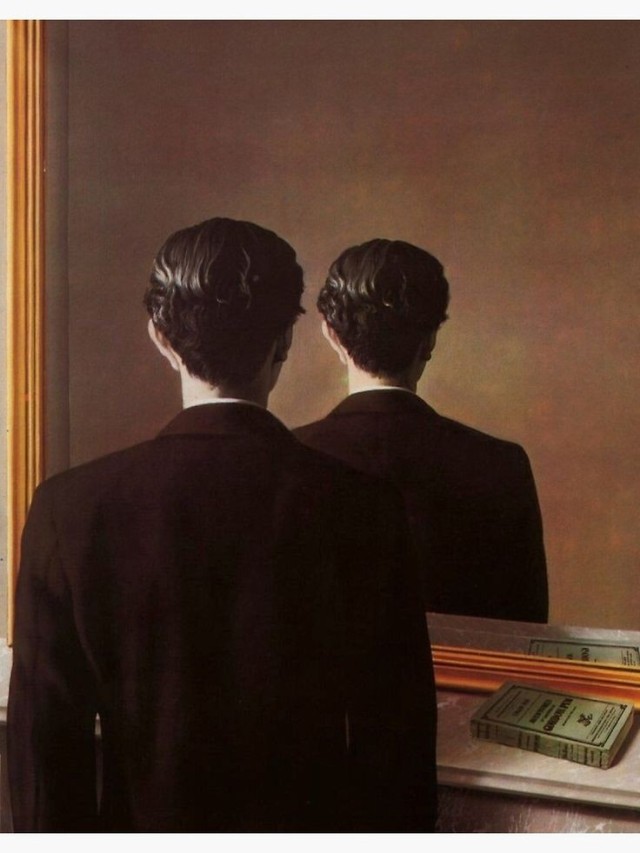#the son of man

I came across this painting and couldn’t look away from it. Rene Magritte’s Not to Be Reproduced encourages us to look longer for a very important reason. It shows a man with his back to the viewer, standing in front of a mirror. On the ledge we see a copy of Edgar Allan Poe’s(my inspiration for Poetry) only novel The Narrative of Arthur Gordan Pimm of Nantucket. We cant help ourselves but to see a rather odd visual. Instead of man’s face being reflected as we would expect, the mirror shows the back of his head, while the book is reflected back in the mirror correctly. This obscurity strikes on the main theme of our ever changing perception. We assume what the mirror will reflect but we are denied the answer we expect. This theme becomes more prominent in today’s world where misinformation mends our perception by appealing to emotions and other storytelling measures. We take things at their face value(first impression is not the last impression for f**k sake) without ever questioning and interrogating things in the first place. The significance of Edgar’s book is that most of his work also deals with the perception of reality. Without getting too philosophical about nature of truth and falsehood, we like to think that our viewpoints about the world are backed up by the facts which we acquire through our timelines and newsfeed. Another major theme present in the painting maybe that of our own identity. The man looks with care into the mirror and wonders who he really might be. We lose our identity in this world where regulation of behaviour and pseudo interaction has become quite the norm. We are always hungry for praise, attention and worried about opposition and in this way lose much of our originality in thinking. We don’t have a secure hold on our values and judgements. This technique of hiding faces, is used by Magritte in many of his paintings like The Lovers, Son of Man and the Great War. This technique evokes confusion, unease and curiosity. Therefor i think, we should use these ordinary moments in our ordinary lives by cleaning up our conflicting inner selves.

